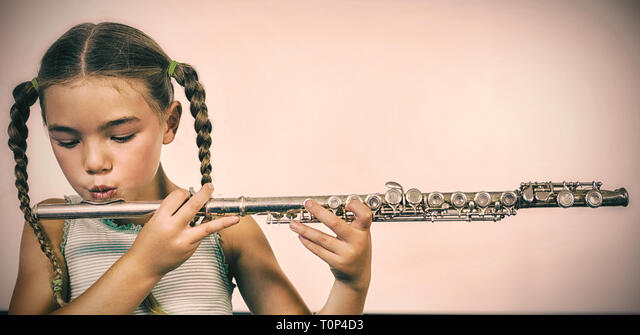Nancy Flanagan is a retired music teacher, and like many music teachers, she’s not a fan of that cute Infiniti commercial. Reposted with permission.
Several years ago, I wrote a blog entitled “I Hate American Idol” for Education Week. EdWeek changed the title to “Music Teacher Hates American Idol”—lest they be accused of trashing one of America’s iconic entertainment boondoggles—and it drew thousands upon thousands of readers and a whole array of nasty comments, which could be summarized thusly: Grow up, whiny music teacher.
Here’s the lede:
I hate American Idol. I really do.
I think it’s an insidious and destructive force on the American media culture (which– let’s be honest–needs all the help it can get), an omnipresent televised influence causing Americans to believe that unless your voice and public persona meet some amorphous standard of style and quality, you should just shut up and stop singing.
Or maybe I should just lighten up. But still.
Everyone who can speak can sing. Really. Singing is just extended, rhythmic speech. Singing is a great gift–a fun, wholesome activity that builds community, expresses joy, sorrow and humor, entertains and binds us together in life’s transitional moments. There is no activity that is not made richer or better illuminated by music.
Community singing around a campfire got ragtag groups of settlers across the prairie, and singing has comforted those who remain behind, bereft, when lives are lost. Music releases emotion far more effectively than words. While it’s wonderful to listen to exquisite vocal harmonies, nothing is more satisfying than actually singing yourself. It’s what we were meant to do as human beings.
And that’s what I tell my students– they are born singers.
If you watch television, you’ve seen the Infiniti commercial where Rich White Lady inexplicably drives her luxury vehicle into a tiered room where children are filmed simply holding—often incorrectly—orchestral instruments. There is a soundtrack marked by significantly scratched tone and seriously out of tune chords, unpleasant to the ears of 21st century consumers who are used to perfect (and often auto-tuned) music. RWL rolls up the window, shutting out the sound, lowers her seat, adjusting the rear view mirror so she can see her adorable daughter, who later rides home in the back seat.
Message: Owning the right car will shut out the cacophony of life. Including the disgusting sounds your children make.
Music teachers universally hate this commercial. Many took time out of preparing for spring concerts, the school musical and recruiting musicians for the 2022 marching band (something everyone in the bleachers on Friday night expects) to comment. There’s plenty to say.
For starters, the piece the students are pretend-butchering is Strauss’s Also Sprach Zarathustra, a tone poem based on a literary work by Friedrich Nietzsche, which incorporates the idea that God is dead. So there’s that.
There’s also the fact that the children portrayed are not actually playing the piece (something that’s obvious to instrumental music teachers)—or even attempting to play an instrument. Shots of cute children incorrectly holding musical instruments are commonplace in advertising (see below).
It’s this ‘cute’ angle that’s most annoying. Children, as previously noted, are born to make music—to sing, to move, to create. Teaching them to appreciate a delicate instrument, to persist through the difficult challenge of making good sounds, learning to work together to create something magnificent—isn’t this the critical essence of authentic education?
I found the commercial insulting to my life’s work.
And I’m wondering:
What if RWL had rolled up her window and ignored her little soccer player, averting her eyes in embarrassment because he was running, knock-kneed, toward the wrong goal?
What if she was scrolling on her phone while her daughter was on stage at a dance performance—unable to watch because the dancing was so painfully inept?
What if she told her 4th grader that her artwork—on display at the school’s art show—was ‘amateurish?’
Parents who reject their children’s efforts at anything because those efforts are clumsy, childish or hard to hear are doing damage. Telling your child that they shouldn’t do something unless it comes easily or can’t be done perfectly is personal vandalism.
I’m not suggesting kids be praised when praise isn’t warranted. I have had literally hundreds of parents joke about their kids’ early efforts at playing an instrument: Moose mating (low brass). Geese honking (oboes). Pigs squealing (clarinets). If accompanied by encouragement and tolerance, these moments can be light-hearted.
One parent remarked: I have sat through a lot of kid concerts and some of them were painful. Let’s face it, when kids are learning, they often do suck.
Nope. That’s the response of an adult who misunderstands the role of persistence and effort. If it’s ‘painful’ to listen, imagine the pain of a child whose parent shuts out their first steps in any endeavor by rolling up the metaphorical window.
Another comment, from a fellow musician: In my band directing days, when parents and staff would joke or complain about the first beginners concert, I’d tell them it was my absolute favorite concert. Four months ago, they didn’t even know how to assemble their instruments. They might not even have known what instrument it was. And now we’re making music.
The first concert was my favorite, too. All six notes, and all the shining faces.
And pretty soon—with time and effort—they can sound like this, taking those skills and friendships into the adult world. No matter what kind of car they’re driving.
Because we’re all born to make music.

